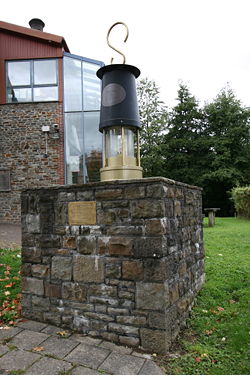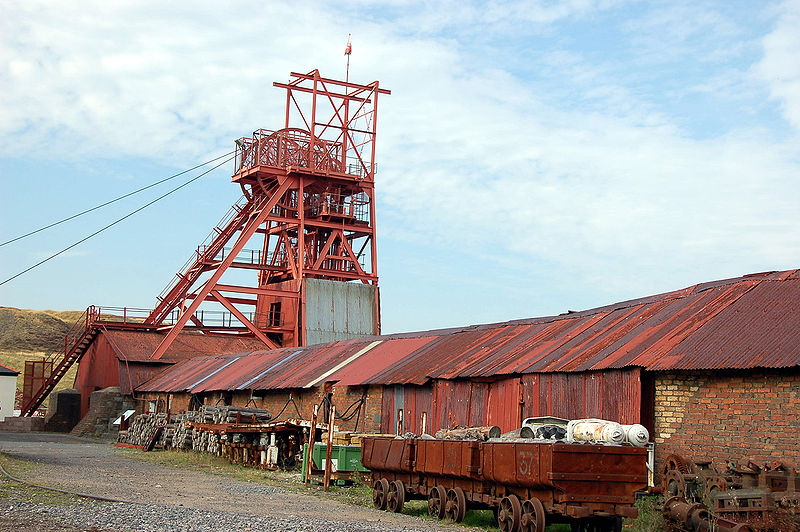Merthyr Tydfil Coal Industry
In South Wales the first miners of whom we have any records were the monks of Neath Abbey, who used coal for iron-making as far back as 1284 AD. The hills in and around Merthyr Tydfil were noted for their iron ore long before coal was used for smelting purposes, as iron ore was conveyed on the backs of mules to Caerphilly, Neath and Aberdare. At these places the ore was smelted by means of charcoal because there was plenty of timber in the neighbourhood. It was easier to carry small loads to the timber than to bring huge loads of charcoal to the iron-ore.

The growing scarcity of timber for the making of charcoal led to the mining of coal for the manufacture of coke, and it was the fortunate occurrence of both iron ore and suitable coal in close proximity that gave Merthyr Tydfil the huge iron and steel industry which was carried on for nearly 200 years. Richard Hill was one of the first to open a small colliery in the district. It was soon realised that there was a good local market for coal, and Richard Crawshay, before 1810, opened a mine for obtaining "sale coal."
The first effort to win a market for coal was made in 1828 by Robert Thomas, a native of West Wales, who opened a level at Waunwyllt,near Abercanaid. He died soon afterwards, but his widow, Lucy Thomas, aided by her son William, carried on the mine for about five years. Mrs Thomas not only sold coal in Merthyr Tydfil, but sent frequent loads as far afield as Cardiff. Her agent Mr George Insole, was impressed by the smokeless character of the coal and sent a shipload to London.
In 1830, merchants from London came to Merthyr Tydfil to meet with Lucy Thomas and agreed to buy at four shillings a ton all the coal she could produce. This was the start of the Welsh export trade in coal. John Nixon, a 24 year old from Durham came to South Wales in 1840, and was commissioned to make a report on the coal in the Dowlais area. He was struck by the quality of coal in use at Dowlais and Penydarren. This almost smokeless coal gave intense heat with very little stoking, thus surpassing that mined in the north of England. Soon, John Nixon saw the necessity for producing his own coal. He opened pits at Werfa, Aberdare, sank Nixon's Navigation, and bought the Duffryn Colliery, Mountain Ash. Finally he sank pits at Merthyr Vale in 1875.

About 1868, Richard Fothergill and Sir Hussey Vivian, after strenuous efforts, persuaded the Admiralty to recognise the superiority of South Wales coal over that of the north of England. As a result, large orders for coal for British warships came to South Wales. Thus the battle for export was won; the smokeless South Wales coals were sought by all nations, and some of the largest colliery companies had established depots in every important port throughout the world.
My grandfather, uncle and cousin worked at a number of collieries in the Merthyr area before the demise of the South Wales coal industry in the late twentieth century. These collieries were:- Deep Duffryn, Ferndale, Maerdy, Merthyr Vale, Penrhiwceiber, Tower and Tylorstown. There were also a number of collieries around the village of Abercanaid, where I spent holidays with my Grandparents in my youth i.e. Abercanaid and Gethin Collieries.
Information on individual collieries kindly supplied by www.welshcoalmines.co.uk